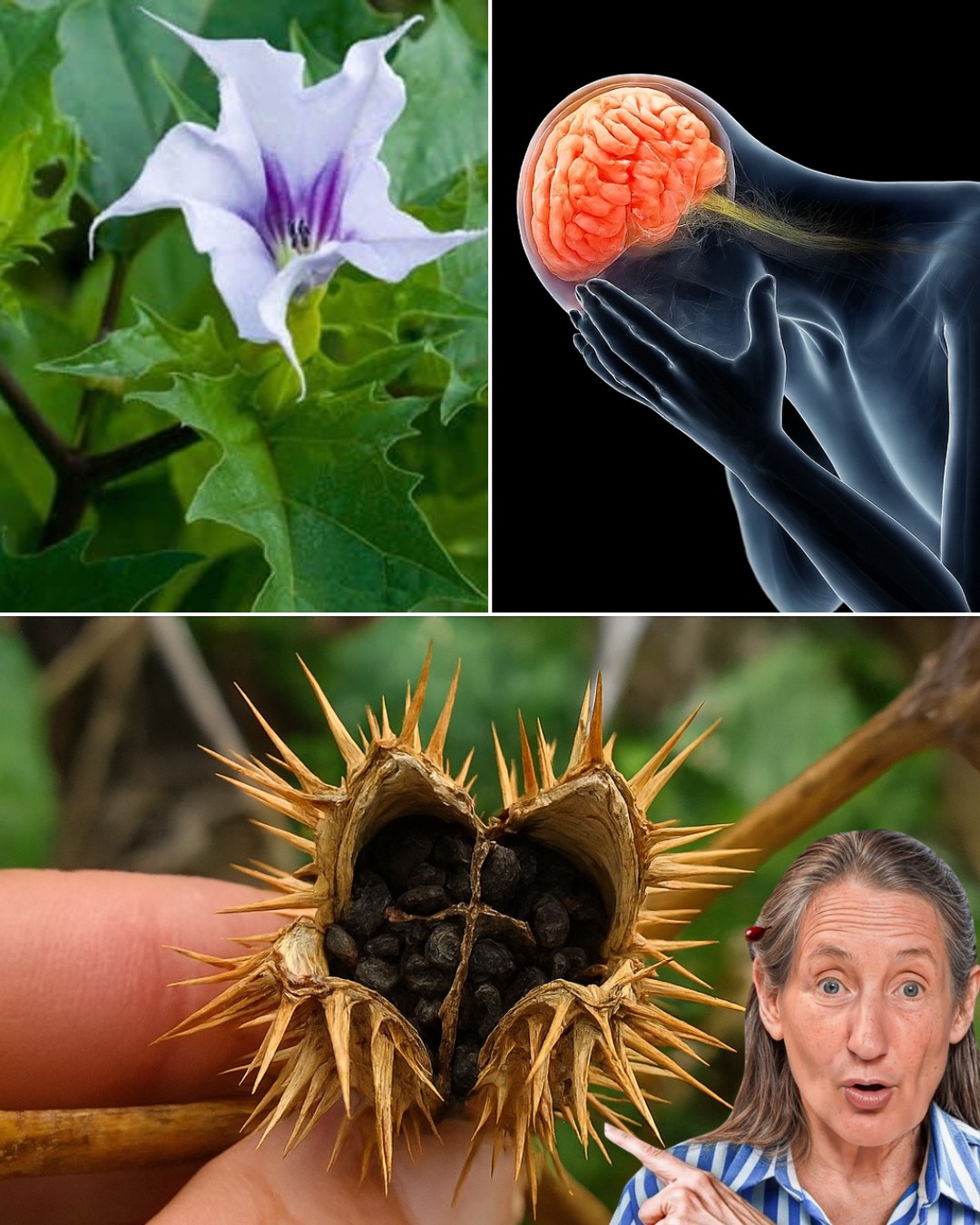Imagine a plant so striking it lures you in with its elegant trumpet-shaped flowers, only to hide a deadly secret within its leaves, seeds, and roots. Meet Datura stramonium, known as Jimson weed, thorn apple, or devil’s trumpet—a plant as dangerous as it is beautiful. Found across the globe, from North America to your backyard, this toxic marvel has been used for centuries in traditional medicine and rituals. But don’t be fooled: one wrong move can lead to severe poisoning, hallucinations, or even death. Ready to uncover the truth about this deceptive plant? Let’s explore its dangers, symptoms, and what to do if you encounter it.
Why Datura Stramonium Is a Silent Threat 🚨
Datura stramonium’s danger lies in its potent tropane alkaloids—atropine, hyoscyamine, and scopolamine. These chemicals act as anticholinergics, disrupting the neurotransmitter acetylcholine, which controls critical bodily functions like heart rate, digestion, and brain activity. Every part of the plant—seeds, flowers, leaves, and stems—is loaded with these toxins, making even a small dose potentially life-threatening. Whether ingested accidentally or misused recreationally, Datura can wreak havoc on your body and mind.
The Toxic Trio: What Makes It So Dangerous? 🔬
Atropine: Triggers rapid heart rate, dilated pupils, and vivid hallucinations.
Hyoscyamine: Disrupts smooth muscle function, causing dry mouth, urinary retention, and digestive issues.
Scopolamine: Induces confusion, delirium, and disorientation, often with terrifying hallucinations.
These alkaloids make Datura unpredictable, with effects varying based on the plant’s age, growing conditions, and the amount consumed. Even touching the plant can pose risks, as toxins may absorb through the skin.
Symptoms of Datura Stramonium Poisoning: What to Watch For ⚠️
Datura poisoning strikes fast, with symptoms appearing within 30 to 60 minutes of exposure and lasting up to 48 hours. The effects, driven by anticholinergic toxicity, can range from uncomfortable to fatal. Here’s what to look out for:
Dry Mouth and Skin: Saliva and sweat glands shut down, leaving you parched and overheated.
Dilated Pupils: Blurred vision and light sensitivity can persist for days.
Rapid Heartbeat (Tachycardia): A racing heart can escalate to dangerous levels.
Delirium and Hallucinations: Vivid, often terrifying hallucinations disconnect you from reality, potentially leading to paranoia or violent behavior.
Confusion and Disorientation: Memory lapses and incoherent thoughts make decision-making impossible.
Severe Agitation: Restlessness and erratic behavior are common as the nervous system spirals.
Seizures: In severe cases, convulsions signal a medical emergency.
Coma or Death: High doses can cause respiratory failure or cardiac arrest, especially without prompt treatment.
Children and pets are especially vulnerable due to their smaller size, where even a tiny amount can trigger severe reactions. Long-term effects may include lingering confusion, memory loss, or psychological issues like anxiety and paranoia.
High-Risk Scenarios: Who’s Most at Risk? 🧒🐶
Datura’s deceptive beauty makes it a hazard in multiple settings. Here’s how it poses a threat:
Accidental Ingestion: The plant’s showy flowers and spiky seed pods attract curious children and pets. A single seed pod can be deadly for a child, while dogs and cats may suffer from drooling, vomiting, or uncoordinated movements after nibbling on leaves.
Recreational Misuse: Some chase Datura’s hallucinogenic effects, unaware of its dangers. The unpredictable potency makes it impossible to gauge a “safe” dose, leading to terrifying experiences or overdose.
Gardeners and Foragers: Mistaking Datura for an edible herb or ornamental plant can lead to accidental poisoning, especially if handled without gloves.
Treatment: Act Fast to Save Lives 🩺
Datura stramonium poisoning is a medical emergency. If you suspect exposure—whether through ingestion, inhalation, or skin contact—act immediately. Here’s what to expect:
Seek Emergency Help: Call emergency services or rush to a hospital. Time is critical.
Activated Charcoal: Administered early, it can absorb toxins in the stomach.
Supportive Care: IV fluids, sedatives, and monitoring of heart rate and breathing stabilize the patient.
Physostigmine: In severe cases, this antidote may reverse anticholinergic effects, but it’s used only under strict medical supervision.
Without prompt treatment, Datura poisoning can lead to seizures, coma, or death. Never induce vomiting unless instructed by a professional, and provide details about the exposure to guide treatment.
